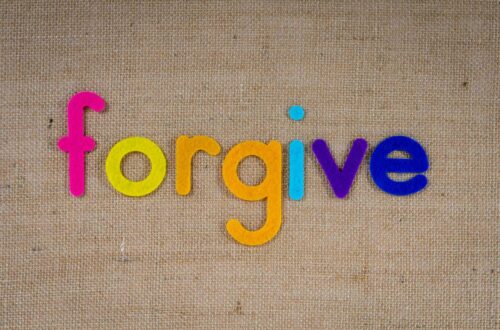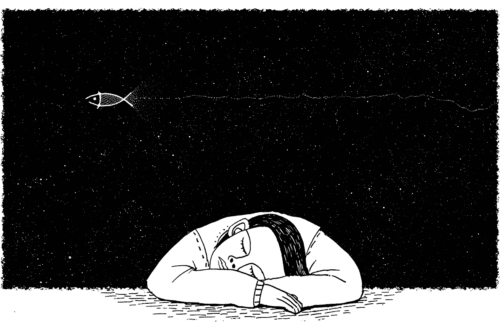Introduction
Addiction is a complex disease that affects individuals in multifaceted ways. Beyond chemical dependency and withdrawal symptoms, addiction has deep ties to our emotional health and wellbeing. Understanding this connection is critical for those struggling with addiction as well as their loved ones.
While the biological factors of addiction have been extensively studied, the emotional aspects are equally important yet often overlooked. Emotions can drive addictive behaviors as people turn to substances or addictive acts to self-medicate and cope with stress, anxiety, depression or trauma. At the same time, addiction itself takes a toll on emotional health, leading to distress, mood disorders and damaged relationships. Breaking the cycle requires addressing both the chemical and emotional drivers of addictive disorders.
That is why taking a holistic view of addiction that encompasses our mental and emotional lives is vital. Healing from addiction involves understanding emotional triggers, building resilience, finding healthy coping mechanisms and having a strong support system. With greater awareness of the psychological factors at play, we can develop more effective treatment approaches. It is time to bring nuance and compassion into how we view and treat addiction.
The Emotional Triggers of Addiction
Addiction does not occur in a vacuum – there are usually complex emotional factors underlying addictive behaviors. Many turn to addiction as a way to cope with difficult emotions like anxiety, stress, depression or trauma.
Over time, people can become reliant on substances or addictive behaviors as a coping mechanism to escape or numb painful feelings. For example, someone who experienced a traumatic event may use alcohol to avoid intrusive memories and emotional distress. Or someone struggling with isolation and loneliness may become addicted to social media for its dopamine hits of pleasure and connection.
Addiction is also reinforced by the temporary positive feelings it evokes. The initial relief or euphoria provided by drugs, alcohol, or addictive behaviors can become powerfully reinforcing. Experiencing these momentary positive emotions can strengthen neural pathways and entrench addictive behaviors over time, even when they cause long-term harm. The psychological and physiological reward is so pleasurable that it overrides the consequences.
Understanding how emotions, both positive and negative, can trigger and reinforce addiction is an important step in treatment and recovery. Learning healthy ways to cope with stress, trauma, or difficult emotions without turning to addiction can enable one to break free of its hold.
The Impact of Addiction on Emotional Well-Being
Addiction can have a profound impact on a person’s emotional health and responses. As substance abuse or addictive behaviors become more chronic, a person’s baseline emotional state can become altered, leading to further emotional distress and dysfunction.
The numbing effect and short-term pleasure derived from addictive substances provides temporary relief from negative emotions. But in the long run, it disrupts the brain’s natural ability to regulate emotions. People suffering from addiction often report feeling emotionally “flat” or drained in the absence of their drug or behavior of choice.
Over time, the addiction creates a vicious cycle where emotional pain drives the addictive behavior, which then leads to more disturbance in mood and emotions. Pre-existing mental health issues like depression, anxiety and trauma can worsen as a result of chronic substance abuse. The person becomes caught in a loop of using drugs or addictive behaviors to self-medicate emotional suffering, which in turn exacerbates the suffering.
This toxic cycle continues to spiral as emotional regulation skills erode. Small frustrations may trigger outsized reactions, like anger, agitation or crying spells. Recovering addicts often struggle with overwhelming emotions and distress during withdrawal. Learning to care for one’s emotional health in recovery is crucial but very challenging. It requires time and dedication to rebuild emotional resilience.
Healthy vs. Unhealthy Coping
When faced with difficult emotions, it’s important to have healthy coping skills to manage them constructively rather than turning to unhealthy coping mechanisms like addiction.
Healthy coping skills include:
- Exercising and staying active – Physical activity can help relieve stress and anxiety while also releasing feel-good endorphins. Going for a walk, run, bike ride or other exercise can be an effective way to cope.
- Practicing relaxation techniques – Deep breathing, meditation, yoga, and mindfulness can activate the body’s relaxation response and quiet your mind when emotions feel overwhelming.
- Connecting with supportive friends and family – Sharing your feelings and leaning on your support system provides comfort and reminds you that you are not alone.
- Talking to a therapist or counselor – Professional counseling gives you a judgement-free space to process emotions with an objective third party.
- Expressing yourself creatively – Writing, art, music, dance can give you an emotional release and sense of accomplishment.
- Spending time in nature – Being around nature, whether hiking in the woods or just sitting outside, can have calming and centering effects.
In contrast, unhealthy coping mechanisms like addiction provide temporary relief but ultimately exacerbate negative emotions and problems. Drugs, alcohol, compulsive behaviors like gambling shift the focus to chasing a high rather than addressing the underlying issues. Professional help and support should be sought to replace unhealthy coping with positive skills for managing emotions.
Emotional Support in Recovery
The path to overcoming addiction is rarely traveled alone. Having a strong support system is crucial for managing the emotional hurdles that arise during recovery. Support groups provide a community of people going through similar struggles. Being able to share personal experiences and provide each other encouragement is invaluable. Support groups like Alcoholics Anonymous give people recovering from addiction a sense of belonging and accountability.
Therapy also plays a major role in addressing the emotional aspects of addiction. Mental health professionals help patients build resilience, cope with triggers, and process traumatic experiences that may be fueling their addiction. Having an objective third party to confide in can facilitate breakthroughs on core issues. Therapeutic techniques like cognitive behavioral therapy teach people how to regulate emotions, manage stress, and change harmful thought patterns.
Practicing self-care, picking up hobbies, exercising, eating healthy, and getting enough sleep also equip people in recovery with positive coping skills. Taking time for activities like journaling, meditation, yoga, or art allow people to express themselves emotionally and find calmer states of being. Maintaining strong social connections outside of addiction, even if just one person, also reduces isolation. The support and understanding of close friends or family helps smooth out the ups and downs of recovery.
Recovery is a journey, and having companionship makes the hard road easier. Support groups, counseling, self-care practices, and close relationships all provide the emotional support vital for overcoming addiction. With time and support, people gain the strength and wisdom to create a life centered around health and emotional well-being.
Building Resilience
When in recovery from addiction, it’s crucial to build resilience against emotional triggers and stressors. Developing healthy coping mechanisms and emotional regulation techniques helps prevent relapses. Here are some effective strategies for cultivating resilience:
- Practice mindfulness techniques like meditation, breathwork, and yoga. Being present in the moment reduces overwhelming emotions and cravings. Apps like Calm and Headspace offer guided mindfulness sessions.
- Make counseling and therapy a regular part of your recovery routine. Trained professionals can help you process emotions, trauma, and underlying issues driving your addiction. Joining a support group provides community and peer empathy.
- Exercise regularly to boost your mood naturally. Physical activity helps manage stress and anxiety. Start an exercise routine that you enjoy, like walking, swimming or joining a recreational sports team.
- Develop healthy sleep habits. Getting quality sleep makes you less susceptible to emotional turmoil and impulsive behavior. Maintain a consistent sleep schedule and limit electronics use before bed.
- Eat a balanced, nutritious diet. What you eat affects your mood and outlook. Limit refined sugars and increase fruits, vegetables, proteins and complex carbs. Stay hydrated with water throughout the day.
- Pick up meaningful hobbies. Engage in hobbies unrelated to your addiction that bring you joy and purpose. Consider arts, crafts, music, sports, reading, journaling, or community service.
- Practice positive thinking and gratitude. Notice negative thought patterns and consciously reframe them. Keep a gratitude journal listing things you’re thankful for.
- Limit social media and news consumption. Too much negative content breeds pessimism. Take breaks from digital devices and diversify your media diet.
- Make social connections. Loneliness can undermine emotional health. Surround yourself with positive people who support your recovery goals.
With commitment and perseverance, you can build your resilience over time. Be patient with yourself and celebrate small wins.
Supporting Loved Ones with Addiction
For friends and family of someone struggling with addiction, providing support while avoiding enabling can be a delicate balance. It’s important to understand that recovery is an emotional rollercoaster and addicts need unconditional support and encouragement.
Set healthy boundaries and refrain from shielding them from the consequences of addiction. Don’t make excuses or cover up for addictive behaviors. Focus on being caring, not controlling.
Show love with listening and understanding, not accusations. Ask how you can help in recovery, and respect if they’re not ready to accept help yet. Avoid lecturing about what they “should” do.
Let them know you care and are available to talk when they need support. Suggest counseling or support groups you can attend together. Share stories of others who have recovered to give hope.
Recovery can take time with ups and downs. Don’t give up hope. Keep communicating and reiterating your support. But also take care of your own emotional health. Seek counseling yourself if you are struggling with supporting your loved one.
With patience and compassion, you can provide the emotional foundation to help your loved one untangle themselves from addiction. Focus on the person, not the addiction. They have the power to heal; your role is showing you believe in them.
Seeking Professional Help
Addiction can take an immense toll on one’s mental health, relationships, and overall wellbeing. While it may seem daunting to reach out for help, seeking professional support and resources is often an invaluable step in overcoming addiction.
There are several signs that indicate you or your loved one may benefit from additional support in addressing addiction:
- Withdrawal symptoms when trying to stop the addictive behavior
- Failed attempts at quitting the addiction
- Ongoing cravings for the addictive substance or behavior
- Inability to control frequency or quantity of use
- Neglecting responsibilities or relationships due to addiction
- Risky behaviors as a result of addiction
- Emotional fluctuations like depression or irritability
If you recognize several of these warning signs, consider taking the next step to seek assistance. There are many resources available that provide help in an empathetic, non-judgmental manner:
- Addiction counselors and therapists – Work with individuals and families to uncover root causes, establish healthy coping skills, and setup personalized treatment plans.
- Support groups – Peer communities like Alcoholics Anonymous or Narcotics Anonymous provide mentorship and shared understanding from those going through similar struggles.
- Treatment centers – Inpatient or outpatient programs allow individuals to detox, receive therapy, develop skills and find community in a structured environment.
- Online tools – Mobile apps, online support groups, virtual therapy and coaching offer convenient resources for tackling addiction.
Don’t let shame or fear hold you back from seeking help. Taking the courageous step to pursue professional support can truly transform and even save lives impacted by addiction. You deserve to overcome this struggle and live a life of health and fulfillment.
Conclusion
Addiction and emotions are deeply intertwined, as we have explored throughout this article. Whether negative feelings trigger substance use or addictive behaviors heighten emotional distress, the two fuel each other in a vicious cycle. Breaking this cycle requires reckoning with the emotional aspects of addiction, not just the physical dependence.
By understanding what drives addictive behaviors and how addiction affects emotional health, we can become empowered to make changes. Seeking professional help to treat both the addiction and underlying emotional triggers is key. At the same time, caring family and friends play a vital role in providing emotional support on the path to recovery.
Healing from addiction means learning new coping strategies, building emotional resilience, and cultivating self-love and acceptance. With compassion for oneself and others, we can overcome the shame, isolation and pain addiction can cause. By addressing addiction holistically, with care for our whole selves, we can rewrite stories of struggle into ones of growth.
If you see your own story reflected here, please know that hope and help are available. Reach out to a trusted friend, loved one or mental health professional. Join a local support group to connect with others on this journey. You do not have to walk this path alone. By taking the first step to get support, you can start the process of untangling yourself from addiction’s web. You are stronger than you know.
Seeking Help and Support
Addiction is a complex disease that requires professional treatment and support. If you or a loved one are struggling with an addiction, it’s important to reach out for help.
There are many options available for getting treatment:
- Talk to your doctor – Primary care providers can connect you with treatment programs and counseling.
- Contact a treatment center – Residential and outpatient programs offer structured care and counseling.
- Find a support group – 12-step programs and peer support groups provide ongoing community.
- Get therapy – Individual and group therapy helps develop coping skills.
- Call a helpline – Free and confidential helplines provide guidance to appropriate treatment.
You don’t have to struggle alone. Trained professionals and support communities can help you or your loved one find hope, meaning and purpose in recovery. With compassion, effort and time, healing is possible. Reach out today to start the journey.
Discover more from Whispers of Insight
Subscribe to get the latest posts sent to your email.





